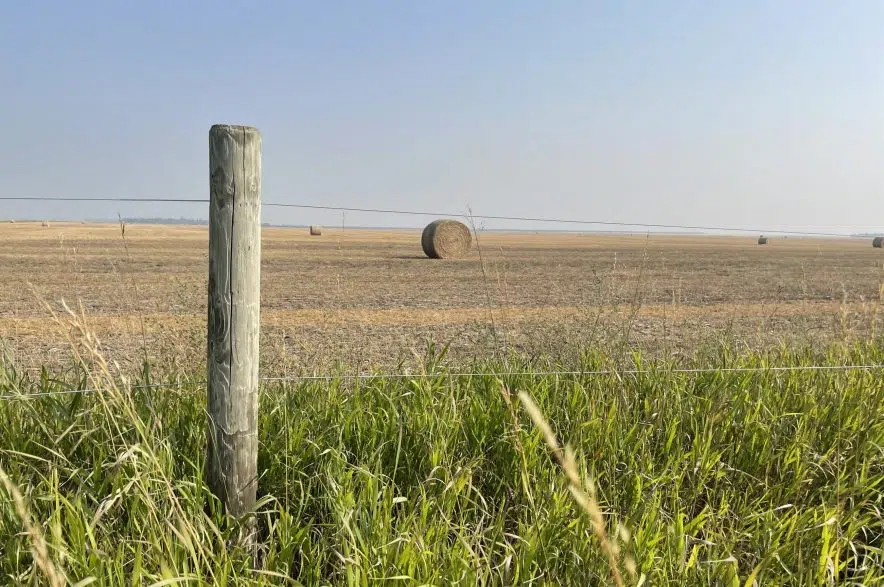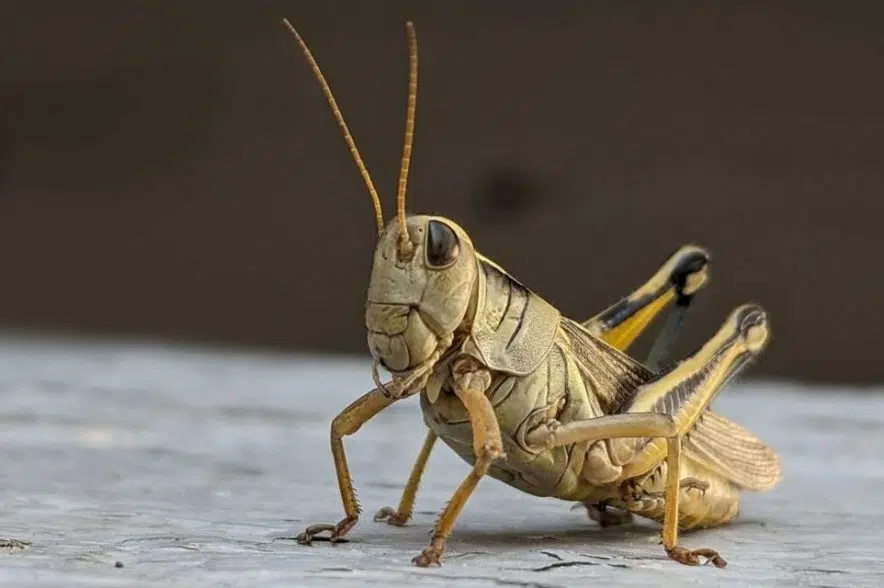Some unwanted visitors are taking their summer vacation in Josef Buttigieg’s fields.
“It’s been a really good year for growing crickets and grasshoppers,” he said.
Grasshoppers have been an issue this year across Saskatchewan. Some rural municipalities have declared states of emergency because of the pests and because of drought-like conditions.
A year of little moisture and pests have strained Buttigieg’s crops. He farms north of Regina in the RM of Lumsden as owner of Fenek Farms.
“For a couple of our places it hasn’t looked too good, unfortunately. And (it’s the) same thing with pests, and the grasshoppers are doing a number on what we have left,” said Buttigieg.
First came the grasshoppers, and then an explosion of crickets followed. Buttigieg said the dirt roads around the area may look like they have been rained on, but really it’s all the crickets laying on the road.
This year held high hopes with lots of moisture in the early summer months, including rain in June – but that was the last time there was a good rain in Buttigieg’s area.
The provincial and federal governments have tried to provide some relief, starting a program through which farmers will be allowed to have their crops assessed to determine whether they’re still useful for feed.
Buttigieg started harvest over a month ago as the heat had aged his crops to the point where he had to harvest them. He’s picking from field to field to find the one that’s in the best harvesting condition.
According to the most-recent crop report from the Ministry of Agriculture, harvest was four per cent complete across the province. The five- and 10-year averages for that time of year was two per cent.
The report said farmers in the southwest were furthest ahead, at 11 per cent. Producers in the northeast were less than one per cent done.
On Buttigieg’s land, alfalfa and oats are in tough shape.
“Unfortunately, what’s happened in some of our fields is that they have a lot of grasshoppers that have eaten all the leaves up to the stems,” said Buttigieg.
The damage done by heat and pests has reduced the quality of his feed crops, and with a full barnyard of cattle, sheep, chickens and turkeys, Buttigieg is feeling the pressure to feed all the animals.
Buttigieg said he is grateful that his crops are not doing as bad as some of those in the western part of the province.
“Well, as my son would always say, it’s ‘better luck next year.’ I think that’s the farming motto for us,” said Buttigieg.












